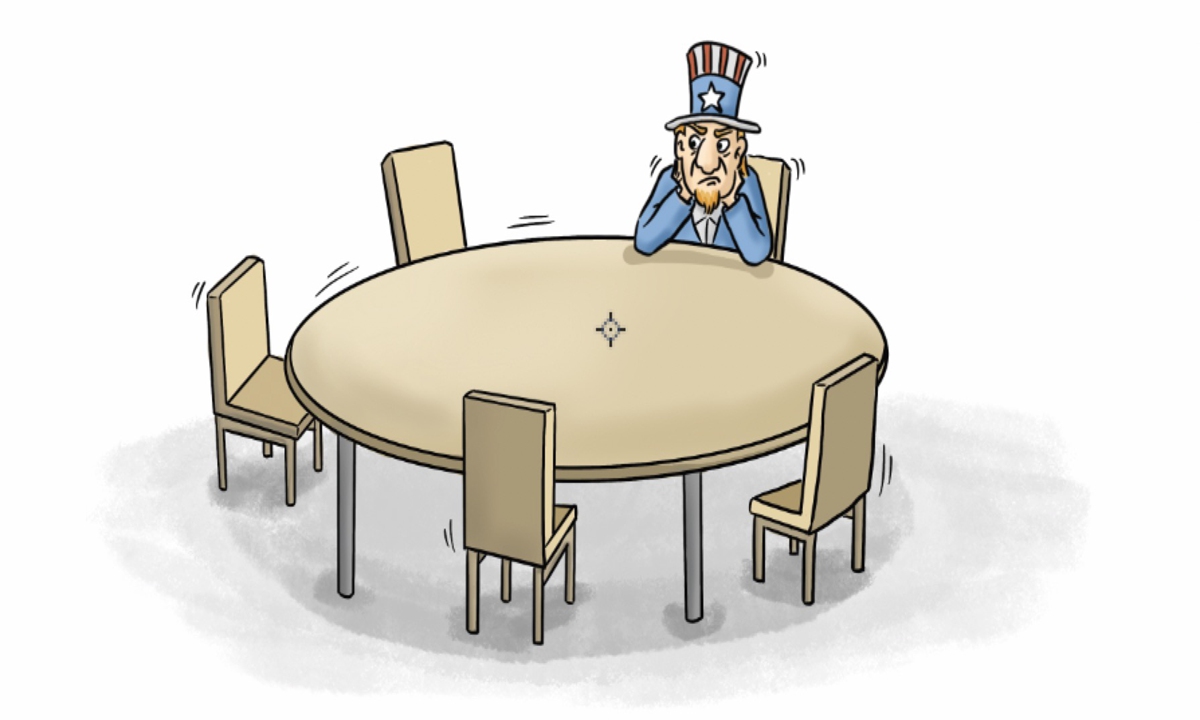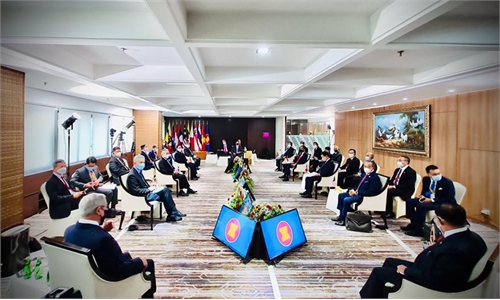COMMENTS / EXPERT ASSESSMENT
US’ attempt to sow discord won’t break solid China-ASEAN ties

US Illustration: Xia Qing/GT
For the first time in four years, the US President took part in a virtual summit with leaders of the Association of Southeast Asian Nations (ASEAN) on Tuesday. But the meeting has been widely viewed as the latest move in Washington's attempt to cajole the bloc back into its containment campaign against China.During the meeting, US President Joe Biden planned to reiterate "enduring" US commitment to ASEAN's central role in regional affairs and vow new initiatives to strengthen the US' strategic partnership with the bloc, Reuters reported.
Biden's participation reflects increasing efforts of his administration to boost US presence throughout the region. Though Washington has been repeating its so-called commitment to ASEAN's central role in its Indo-Pacific strategy, it, in fact, had been ignoring the region for years.
Since Biden took office in January, senior White House officials have been taking turns to pay visits in the region, including Vice President Kamala Harris and Deputy Secretary of State Wendy Sherman. Analysts have suggested this increased level of activity is tied to the US' intention to pit countries in the region against China.
However, it has become clear that the US' frequent ill-intentioned actions in the region, including the so-called Quad and the newly formed AUKUS alliance, have greatly heightened uncertainty and risk.
The Southeast Asian region has its own long-standing and effective security and economic cooperation mechanisms, which have been undermined by the US' recent actions. This is not what ASEAN wants to see, and obviously not in line with the bloc's core interests. Facing intensifying wrestling between China and the US, many Southeast Asian countries, including Singapore and Vietnam, have stuck to their approach of not choosing sides.
Contrary to the US' efforts to create further uncertainty in the region, China has been seeking mutually beneficial cooperation with the ASEAN. Most notably, the highly integrated economic ties between China and ASEAN are impossible for the US to break and replace.
In 2020, ASEAN became China's largest trading partner for the first time, with a total trade volume of 4.74 trillion yuan ($742.8 billion), increasing 7 percent, despite the COVID-19 pandemic. Also, China's direct investment in ASEAN reached $16.06 billion in 2020, surging 23.3 percent year-on-year.
Moreover, China, ASEAN members and four other countries inked the Regional Comprehensive Economic Partnership (RCEP) at the end of last year. The mega agreement covers nearly 30 percent of the global economy and population, offering unrivalled momentum to boost long-term growth of involved members.
Singaporean Prime Minister Lee Hsien Loong on Tuesday again called for early ratifications of RCEP, stressing the agreement's great role in boosting confidence in regional trade and investment and making a significant contribution to the post-epidemic economic recovery in the region, according to media reports.
Indeed, with the US fixing its eyes on China and attempting to sow discord in the region, China-ASEAN cooperation will not be free of challenges. However, by keeping each other's concern in mind and genuinely respecting each other, the promising development trend of regional economic integration will not be reversed by the US or any other force in the world.
The article was compiled based on an interview with Xu Liping, director of the Center for Southeast Asian Studies at the Chinese Academy of Social Sciences in Beijing. bizopinion@globaltimes.com.cn



